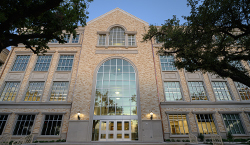Cassidy drew on his career experience in the military, space, and nonprofit business world to illustrate how resilience, trust, and preparation fuel success under pressure.
September 19, 2025
By Shelby Northrup
Content Creator, Neeley Communications
To launch the Tandy Executive Speaker Series for the new academic year, the TCU Neeley School of Business welcomed Captain Chris Cassidy, former Navy SEAL, chief astronaut, and current CEO of the National Medal of Honor Museum. The audience for the breakfast event included North Texas business professionals, students, faculty, and veterans eager to learn from Cassidy’s experiences across multiple industries.
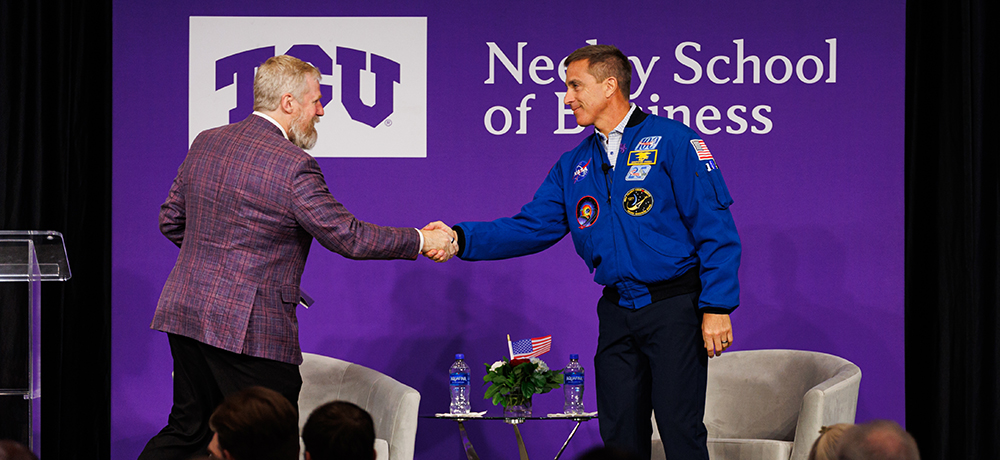
In a fireside-style conversation led by the John V. Roach Dean of the Neeley School of Business Craig Crossland, Cassidy reflected on his unique career trajectory and the leadership lessons he’s carried from the military to space and into the nonprofit world. He described moments of doubt in his career, and how trusting in others’ belief and his own preparation allowed him to thrive in some of the most demanding environments imaginable.
“Each step of the way, you have this feeling of ‘am I ready for this?’ But what I’ve realized in life is that people don’t put you in those positions if they don’t believe in you and if they don’t think you have the skills to be successful,” Cassidy said. “You have to let it happen, let yourself be successful, let the team be successful.”
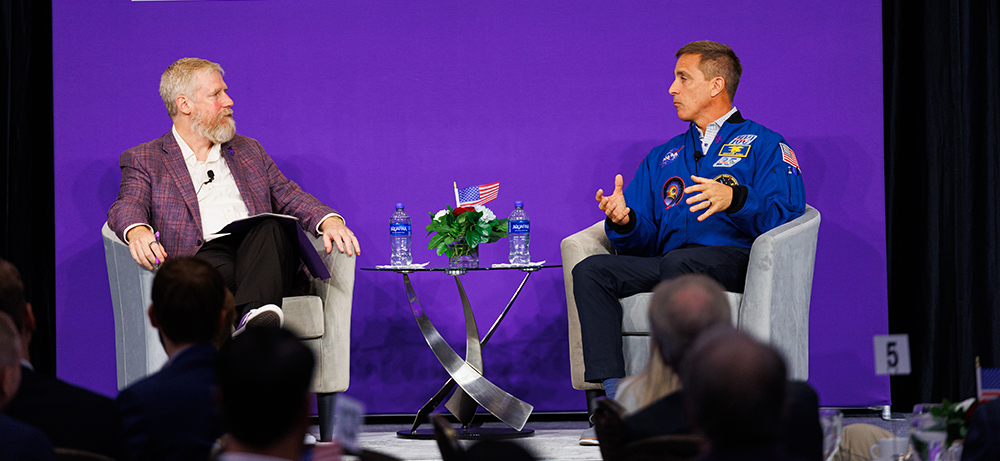
Throughout the conversation, Cassidy explained how he translated his experience in the military and as an astronaut to his current career leading a nonprofit business, despite the different industries.
He detailed a military concept called “commander’s intent,” where leadership defines objectives and responsibilities, as well as clear boundaries, and then provides an employee with the freedom to creatively work to successfully complete the project or task.
Cassidy also applied lessons learned from high-stakes operational environments, in Navy SEAL missions and spaceflight, regarding the speed of decision-making in a business environment. In some instance it is better to move quickly instead of striving for absolute perfection, and that’s determined by stress and time requirements in that particular environment.
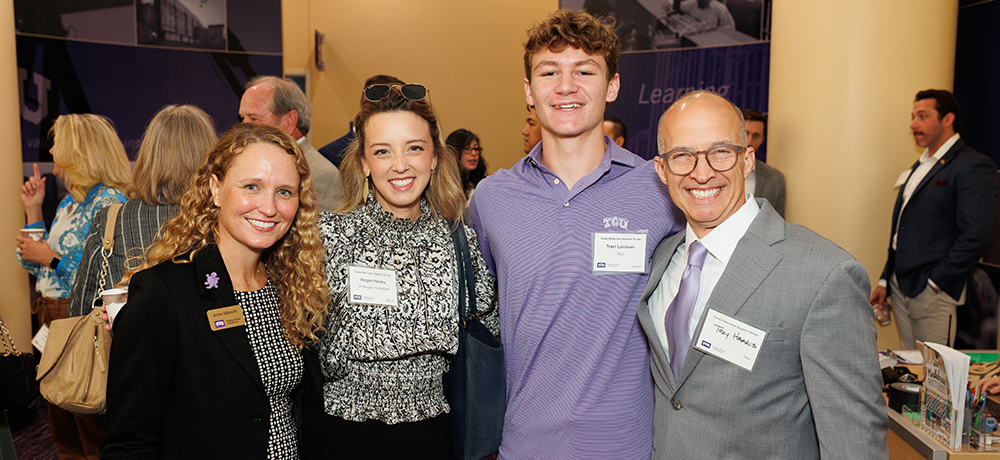
“I was interested in knowing how he transfers those leadership skills into the community. Hearing about his responsibility and raising funds was interesting to me,” said Lydia Traina, a current MBA student in Neeley and TCU’s director of advancement research.
Crossland commended Cassidy for his wide-ranging career, being an inspiration for young professionals but also for those further in their professions, reflecting on how easy it is to have a positive effect on other people’s lives by giving them opportunities to succeed.
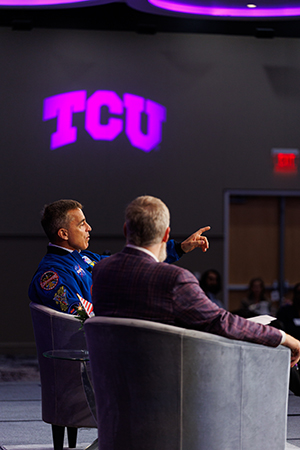 Judson Tighe, a first-year TCU student interested in focusing on supply chain and business information systems, noted that Cassidy’s persistence stood out.
Judson Tighe, a first-year TCU student interested in focusing on supply chain and business information systems, noted that Cassidy’s persistence stood out.
“I found his story really inspiring. Coming from starting in the military, not even knowing what he’s getting into, to having such an inspiring career path. It really shows that you have to let life work out and never really know what’s going to come back,” Tighe said.
Cassidy also offered insight into his current work leading the National Medal of Honor Museum, emphasizing the importance of trust and relationships in philanthropy.
“It’s all about relationship building and articulating the mission,” Cassidy said. “I realized that there are so many awesome causes out there, so many ways for people to give their philanthropic energy, whether it’s time or money … The mission matters, but also the trust matters too. If they don’t believe you’re going to do right by the gift or support, then they’ll give it elsewhere.”

